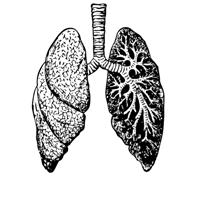The extrinsic factors affecting patient access, referral and treatment of lung cancer in selected oncology public health facilities in KwaZulu-Natal

Accepted: 14 December 2021
HTML: 78
All claims expressed in this article are solely those of the authors and do not necessarily represent those of their affiliated organizations, or those of the publisher, the editors and the reviewers. Any product that may be evaluated in this article or claim that may be made by its manufacturer is not guaranteed or endorsed by the publisher.
Patients’ insights into the factors affecting access, referral and treatment of lung cancer in public healthcare facilities, are key to the fight against this disease. On the other hand, the lack of epidemiological information on the actual burden of lung cancer, makes it difficult for public healthcare facilities to be adequately equipped to deal with foreseeable challenges in the oncology units. In order to inform patientcentred interventions and lung cancer control programmes, this study explored extrinsic factors that affect lung cancer patients throughout the cancer care continuum in KwaZulu-Natal. Nineteen patients receiving care in the three public healthcare facilities providing oncology services in KwaZulu-Natal, were interviewed using an interview guide. Following data saturation, thematic analysis was used to develop the themes relating to the extrinsic factors affecting the provision of cancer care. Five themes emerged from the analysis, namely: geographical dynamics affecting patient access to a healthcare facility, lung cancer suspicion index in the diagnostic trail within the different levels of care, decision-making trail for the referral system, equipmentinduced delays and healthcare-patient communication. A number of lung cancer patients utilising oncology services in public healthcare facilities in KwaZulu-Natal, are often met with various extrinsic factors affecting their progression through different stages of cancer care continuum. Therefore, the results of the extrinsic factors explored in this paper through the lung cancer patients’ lenses may be used for designing mitigation plans to reduce delays in lung cancer care in KwaZulu-Natal.
Nojilana B, Bradshaw D, Pillay-van Wyk V, et al. Persistent burden from non-communicable diseases in South Africa needs strong action. South Afr Med J 2016;106:436-7.
Cazap E, Magrath I, Kingham TP, Elzawawy A. Structural barriers to diagnosis and treatment of cancer in low- and middle-income countries: The urgent need for scaling up. J Clin Oncol 2016;34:14-9.
WHO. New Global Cancer data: GLOBOCAN 2018. WHO, 2018. Available from: https://www.uicc.org/new-global-cancer-data-globocan-2018#
Winkler V, Mangolo NJ, Becher H. Lung cancer in South Africa: a forecast to 2025 based on smoking prevalence data. BMJ Open 2015;5:e006993.
Mayosi BM, Flisher AJ, Lalloo UG, Sitas F, Tollman SM, Bradshaw D. The burden of non-communicable diseases in South Africa. Lancet 2009;374:934-47.
Burger R, Christian C. Access to health care in post-apartheid South Africa: Availability, affordability, acceptability. Health Econ Policy Law 2018:1-13.
Harris B, Goudge J, Ataguba JE, McIntyre D, Nxumalo N, Jikwana S, et al. Inequities in access to health care in South Africa. J Public Health Policy 2011;32:S102-23.
Moodley J, Walter FM, Scott SE, Mwaka AM. Towards timely diagnosis of symptomatic breast and cervical cancer in South Africa. S Afr Med J 2018;108:803-804.
Espina C, McKenzie F, dos-Santos-Silva I. Delayed presentation and diagnosis of breast cancer in African women: a systematic review. Ann Epidemiol 2017;27:659-71.e7.
Hannan A. Misdiagnosis of cancer as tuberculosis in low- to middle-income countries: A tip of the iceberg! J Glob Oncol 2016;2:244-5.
Morhason-Bello IO, Odedina F, Rebbeck TR, et al. Challenges and opportunities in cancer control in Africa: a perspective from the African Organisation for Research and Training in Cancer. Lancet Oncol 2013;14:142-51.
Mnyanda L. Care for cancer patients lags behind in SA's public health facilities. Business LIVE. 27 June 2018.
Baum F. Researching public health: Behind the qualitative-quantitative methodological debate. Social Sci Med 1995;40:459-68.
Taplin SH, Anhang Price R, Edwards HM, et al. Introduction: Understanding and influencing multilevel factors across the cancer care continuum. J National Cancer Institute Monographs 2012;2012:2-10.
Health Do. Government notices: regulations relating to categories of hospitals. In: Health, editor. 2012.
Braun V, Clarke V. Using thematic analysis in psychology. Qual Res Psychol 2006;3:77-101.
Venter M, Venter C, Botha K. Cancer treatment in South Africa: A narrative literature review. J Psychol Afr 2012;22:459-66.
Coovadia H, Jewkes R, Barron P, et al. The health and health system of South Africa: historical roots of current public health challenges. Lancet 2009;374:817-34.
Mayosi BM, Benatar SR. Health and Health Care in South Africa — 20 Years after Mandela. New Engl J Med 2014;371:1344-53.
Masamba LPL, Jere Y, Brown ERS, Gorman DR. Tuberculosis diagnosis delaying treatment of cancer: Experience from a new oncology unit in Blantyre, Malawi. J Global Oncol 2016;2:26-9.
Mansell G, Shapley M, Jordan JL, Jordan K. Interventions to reduce primary care delay in cancer referral: a systematic review. Br J Gen Pract 2011;61:e821-e35.
Emery JD, Shaw K, Williams B, et al. The role of primary care in early detection and follow-up of cancer. Nature Rev Clinical Oncol 2013;11:38.
Malalasekera A, Nahm S, Blinman PL, et al. How long is too long? A scoping review of health system delays in lung cancer. Eur Resp Rev 2018;27:180045.
Nonzee NJ, Ragas DM, Ha Luu T, et al. Delays in Cancer Care Among Low-Income Minorities Despite Access. J Women's Health 2015;24:506-14.
Mostert S, Njuguna F, Olbara G, et al. Corruption in health-care systems and its effect on cancer care in Africa. Lancet Oncol 2015;16:e394-e404.
O'Rourke N, Edwards R. Lung cancer treatment waiting times and tumour growth. Clinical Oncology 2000;12:141-4.
Diefenbach M, Turner G, Carpenter KM, et al. Cancer and patient-physician communication. J Health Comm 2009;14:57-65.
Rocque R, Leanza Y. A systematic review of patients' experiences in communicating with primary care physicians: Intercultural encounters and a balance between vulnerability and integrity. PloS One 2015;10:e0139577-e.
Frankel RM. Relationship-centered care and the patient-physician relationship. J General Internal Med 2004;19:1163-5.
Ramathuba D, Jacqueline R, Ndou N. Patients’ perspective of cancer treatment and care in Vhembe District of Limpopo Province. J Nurs Care 2014;3:2167-1168.1000186.


 https://doi.org/10.4081/hls.2022.10170
https://doi.org/10.4081/hls.2022.10170



